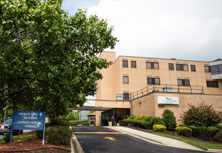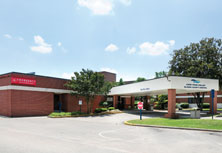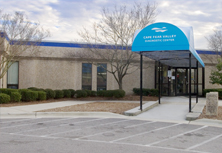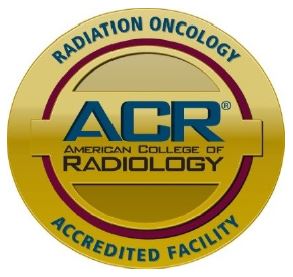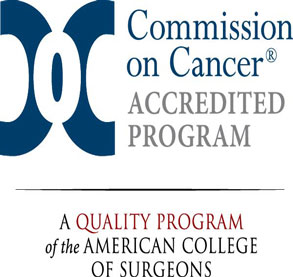Clinical Trials Frequently Asked Questions
For many patients, standard chemotherapy regimens provide the best possibility of long-term survival. They have strange names like CHOP, which stands for Cytoxan® (cyclophosphamide), doxorubicin hydrochloride (Adriamycin®), Oncovin® (vincristine) and Prednisone, the four cancer drugs that are used.
For most patients, these chemotherapy regimens provide fairly predictable results and are the first choice in treating the cancer. If the regimen fails, the medical oncologist can opt for a clinical trial - a research protocol that may use new chemotherapeutic drugs or use new combinations of drugs. Sometimes standard treatments offer poor chances of long-term survival and a clinical trial holds out new hope to patients.
The Medical Oncology Department of Cape Fear Valley Cancer Center has been offering clinical trials for many years. These clinical research studies determine the possible benefits of new and innovative therapies.
The only way to prove the potential benefits of a new treatment is to perform a clinical trial. By conducting a clinical trial, we are able to determine the risks and benefits of a new drug regimen and then compare those risks and advantages to standard therapy used in the past.
There are four research phases of a clinical trial:
- Phase I - The drug is only given to a small number of patients. Researchers look for the best way to give a new treatment. If the drug proves to be safe, the trial proceeds to Phase II.
- Phase II - The drug undergoes testing to determine its effect on different types of cancers. Researchers also look for ideal dosing ranges and possible side effects.
- Phase III - If the drug shows activity against the cancer, it is then compared with common or standard therapies. Researchers want to establish if the trial therapy is more beneficial than the standard therapy. The patients who take part in this comparison are randomly chosen to receive either the new treatment or the standard treatment. Those receiving the standard therapy are referred to as the “control group.” The control group receives the best available standard treatment. Phase III studies usually include hundreds of participants around the country.
- Phase IV - Studies the safety and effectiveness of cancer therapies that are already FDA approved and available for the general public.
Clinical trials provide advances in medicine and science. New cancer treatments must be proven to be safe and effective. Through these scientific studies, researchers are able to conclude which methods of treatment are most successful.
There are many advantages to enrolling in a clinical trial at our Cancer Center. Not only does the participant benefit from a study that may prove to be a superior treatment, but others also benefit from the increased knowledge that the study discloses.
Our Oncology Research Coordinator determines if the patient meets all eligibility requirements necessary to participate in a clinical trial. They also provide information on current studies and answer questions regarding the safety and side effects of the treatment.
An Institutional Review Board (IRB) oversees the action plan or protocol related to each clinical trial. The IRB is comprised of physicians, medical specialists, nurses, social workers, medical ethicists and patient advocates who have no special interest in any specific trial. IRB members are responsible for reviewing protocols to ensure that patients are not exposed to unethical risks. These boards also ensure that trials are conducted with the full consent of the patient.
Participating in a study is completely voluntary. Clinical trials do require that a participant be able to receive a treatment and submit to monitoring and follow-ups. However, patients who join a study are free to withdraw at any time.
In most cases, patients and the trial sponsors are financially responsible for clinical trial costs. Drugs offered in the study may be supplied by the pharmaceutical company through the National Cancer Institute; however, patients participating in the study may be responsible for routine costs, such as doctor visits, lab tests, scans, x-rays and hospital fees.
Clinical research studies add to our knowledge and progress against cancer. Patients who take part may be among the first to benefit from innovative therapy and as a result, provide useful information, which will aid many others.
Those interested in learning whether they are candidates for one of numerous clinical trials being conducted at The Cancer Center should contact the Oncology Research Coordinator at 910-615-5057
Cancer Stories
- About
- Meet our Physicians
- Patient Stories

